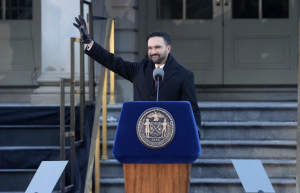Pope Francis has chosen his first batch of cardinals from developing countries such as Haiti, Ivory Coast and Burkina Faso reflecting his emphasis on a fair representation from poor nations.
Ten of the 19 cardinals named by the Pope are from Latin America, the Caribbean, Asia and Africa. While none from the United States figure in the list. Only four cardinals were chosen from Curia, the governing body of the Vatican.
"This reflects Francis' desire to make the Church more universal and to correct imbalances," said Gerard O'Connell, a Rome-based contributor to the online publication 'Vatican Insider,' reported the Los Angeles Times. "A different logic is at work here. The rules are no longer operative. The U.S., for example, is already disproportionately represented."
Sixteen of the 19 cardinals are aged below 80 that will make them eligible to vote in the Papal Conclave after the February 22 ceremony, according to the Associated Press.
The Pope chose 66-year-old Archbishop Aurelio Poli, his successor in the Argentine capital Buenos Aires, and the archbishops of Managua in Nicaragua, Rio de Janeiro in Brazil and Santiago in Chile. Archbishops of Ouagadougou in Burkina Faso and Abidjan in Ivory Coast were chosen from Africa. While the archbishops of Seoul in South Korea and Cotabato in the Philippines represent Asia, stated Reuters.
Recently appointed secretary of state Pietro Parolin, an Italian, and Gerhard Ludwig Muller, a German and the head of the Congregation for the Doctrine of the Faith, the Vatican's doctrinal regulator, have been selected from the Curia.
The list also includes Archbishop Chibly Langlois, 55, the first cardinal from Haiti, the country known to be the poorest in the Western Hemisphere, Reuters reported. World Bank statistics say that nearly 80 percent of the country's population lives in utter poverty. Africa and Asia now boast of having 13 cardinal electors.
"Today we are marking four years since the earthquake," said a priest, Hans Alexandre, in Haiti, according to the Associated Press. He also said that the Pope's focus on the poor "touches us immensely."
According to the Rome-based contributor O'Connell, by selecting just four cardinals from Curia, Francis showed that he "wants to put an end to careerism and the idea of automatic appointments." "Some 28 of the 115 cardinals at the last conclave were Italians and many cardinals said that was over the top," he said, reported the LA Times "Francis is breaking with the tradition of automatically making the archbishops of major Italian cities cardinals."
By naming the appointments from Central and South America, the pontiff boosted cardinal electors to 19 in the 122 college of cardinals. Europe leads with 61 electors that include 29 Italians. While North America has 15 electors, with 11 being from the United States and four from Canada, reported Reuters.
The news agency further reported that the cardinals are known to be the Pope's closest advisers in the Vatican and around the world. Those based out of Rome are part of key committees in the Italian capital. These committees decide policies that can have an effect on the lives of 1.2 billion Roman Catholics.
© 2026 HNGN, All rights reserved. Do not reproduce without permission.








